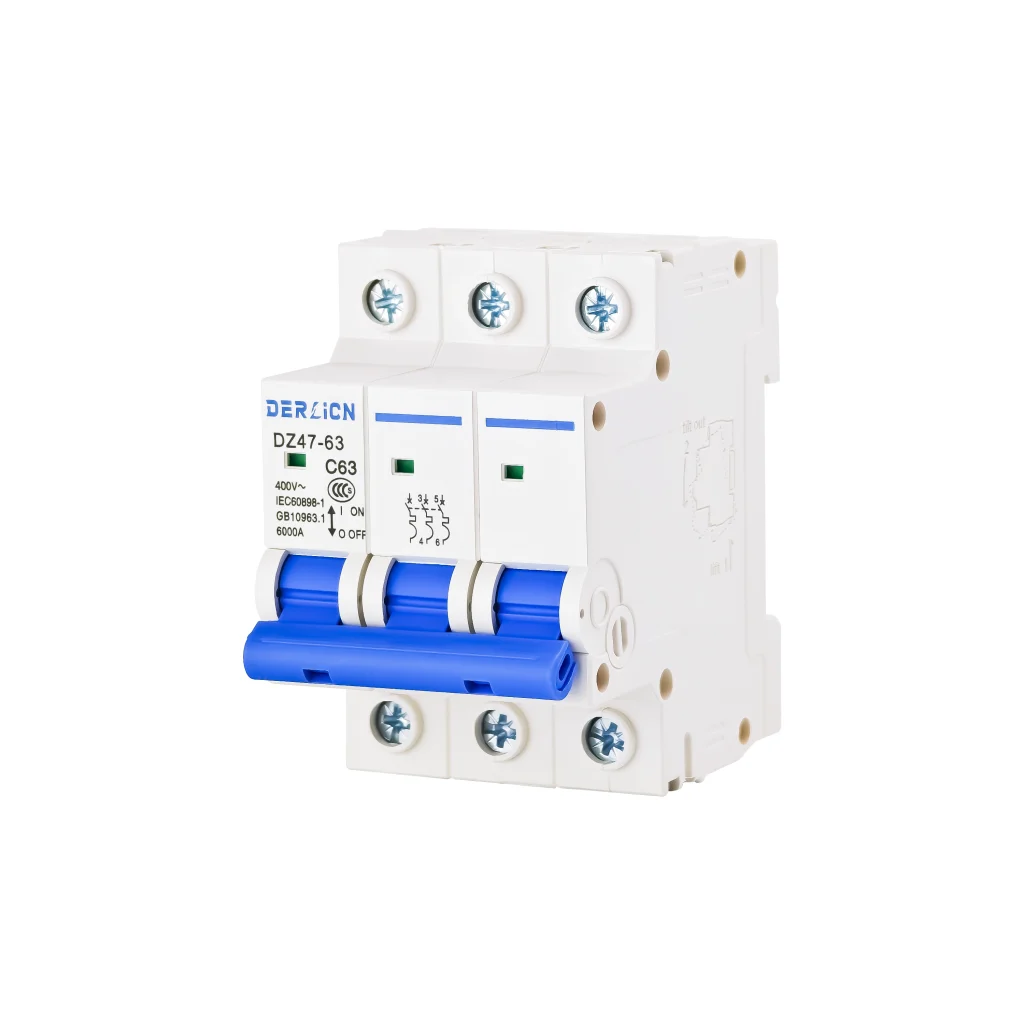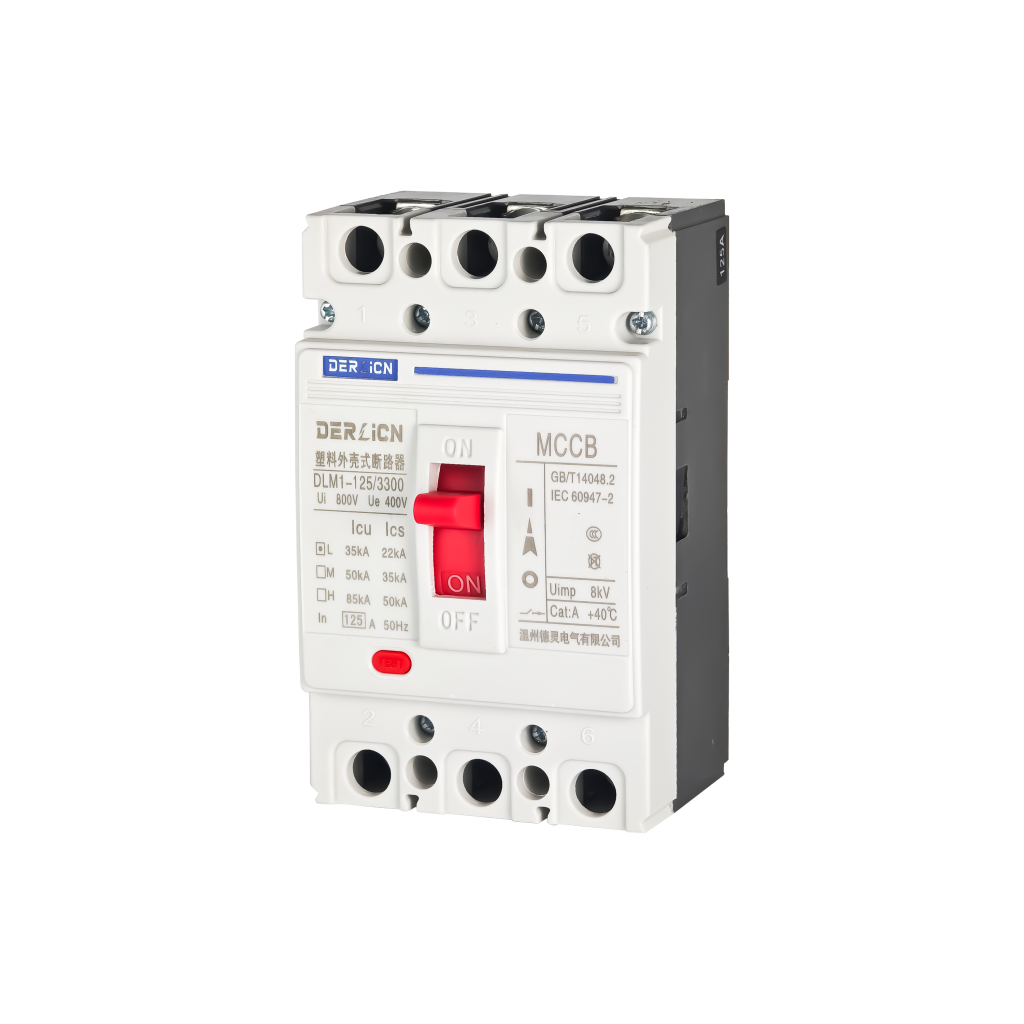In every electrical system, circuit breakers play a crucial role in protecting people, equipment, and property. But when it comes to choosing between a Molded Case Circuit Breaker (MCCB) and a Miniature Circuit Breaker (MCB), many users are unsure which is best for their needs.
While both devices interrupt electrical faults and overloads, they differ in capacity, design, application, and cost. This guide will help you understand the differences and make the right choice for your system.
What Is a Miniature Circuit Breaker (MCB)?
An MCB is a compact, low-capacity circuit breaker used in residential and light commercial applications. It is typically rated up to 125A with a breaking capacity of around 3.5kA to 10kA.
Key Features of MCBs:
Rated for currents up to 125A
Used in single-phase and small three-phase systems
Fixed trip settings (non-adjustable)
Slim and easy to install on DIN rails
Lower cost and space-saving design
Ideal for protecting lighting, outlets, and small appliances
What Is a Molded Case Circuit Breaker (MCCB)?
An MCCB is a heavy-duty circuit breaker designed for higher current ratings, up to 1600A or even more. Unlike MCBs, most MCCBs allow adjustable trip settings and offer better fault protection in industrial and commercial systems.
Key Features of MCCBs:
Rated for currents from 10A to 1600A (or more)
Higher breaking capacities, often 25kA to 100kA
Adjustable overload and short-circuit protection
Available in 3-pole and 4-pole configurations
Suitable for motor protection, panel boards, and transformers
Compliant with international standards such as IEC 60947-2
MCCB vs MCB: Side-by-Side Comparison
When Should You Use an MCB or an MCCB?
Choose an MCB if:
Your load is light (lighting circuits, outlets, small appliances)
You’re working in a home, apartment, or small commercial space
You need a cost-effective and compact breaker
You don’t require adjustable trip settings
The system’s fault level is below 10kA
Example use cases: Distribution boards in homes, retail stores, small office buildings.
Choose an MCCB if:
Your system involves higher current loads
You need adjustable protection settings for motors or transformers
You’re working in a factory, industrial plant, data center, or commercial complex
The short-circuit fault level exceeds the limits of MCBs
You require selective coordination and higher reliability
Example use cases: Motor control centers (MCCs), switchgear, solar PV systems, generator protection, large distribution panels.
How to Choose Between MCCB and MCB?
Ask yourself the following questions:
What is the system voltage and current level?
What type of load are you protecting? (lighting, motors, HVAC, etc.)
Is the fault level in your area high?
Do you need trip setting flexibility?
Is panel space a constraint?
If you’re still unsure, consult your electrical engineer or supplier. Choosing the wrong type of breaker can lead to equipment failure, fire risk, or non-compliance with electrical codes.
Derlicn Electric: Professional Circuit Breaker Solutions
At Derlicn Electric, we design and manufacture a complete range of MCBs and MCCBs tailored to different power applications. Our breakers comply with IEC standards, offering reliable protection and long service life.
✅ Full range: 1P, 2P, 3P, 4P MCBs (6A–125A)
✅ Industrial-grade MCCBs: up to 1600A, 3-pole, 4-pole
✅ High breaking capacities and safety certifications
✅ OEM & ODM support for custom electrical projects
✅ Competitive pricing and fast global delivery
📩 Contact Derlicn today for a quote, datasheet, or catalog.
Conclusion
While MCBs and MCCBs both serve to protect circuits, they are built for different scenarios. MCBs are perfect for small-scale, low-risk environments. MCCBs are the go-to solution for heavy-duty and flexible protection in industrial systems.
Choose the right protection. Power with confidence—choose Derlicn.
Table of Contents
Have you Any Questions?
Can’t find an answer to your question, or want more information about our products? If so, please feel free to get in touch with our professional team. We’re here to help you drive your projects to success.


